The Cambridge evacuation survey: a wartime study in social welfare and education is published, edited by Susan Isaacs.
The Cambridge evacuation survey: a wartime study in social welfare and education is published, edited by Susan Isaacs.
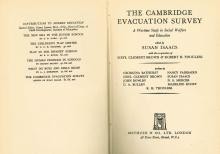

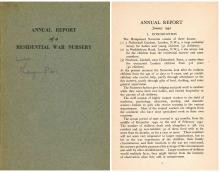
Anna Freud and Dorothy Burlingham open the Children's Rest Centre in London, later to become known as the Hampstead War Nurseries. These are foster care centres for single-parent children, evacuated children (during the Blitz), or children with no other family.
Image: Report of the Nursery 1942 from Ilse Hellman. Scanned title and intro.
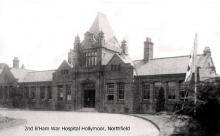
1942-3
While serving as army psychiatrists at Hollymoor Hospital, Wilfred Bion and John Rickman devise what later becomes known as the ‘First Northfield Experiment’. Their attempt to create a 'leaderless' group therapy with soldier patients inspires an entire generation of post-war group therapists, especially among the Tavistock Clinic circles.
Image: Hollymoor Hospital
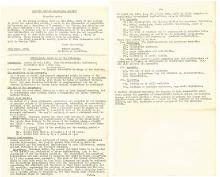
1942-4:
The ‘Controversial Discussions’ take place. Due to deepening differences between Melanie Klein and her opponents in the British Society – most significantly Anna Freud – a series of scientific meetings is arranged. Klein and a few of her closest colleagues circulate four papers embodying Kleinian theory. After each paper participants submit written comments, which are then discussed by the members. These eleven meetings come to be known as the ‘Controversial Discussions’.
A third group of 'independent' psychoanalysts – including figures such as Donald Winnicott, Michael Balint and Marion Milner – will emerge in the decade following the 'Discussions'.
Image: Announcement of 'The Discussions'
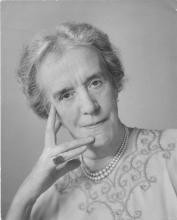
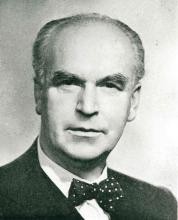
Edward Glover resigns from the British Psycho-Analytical Society due to his strong disagreements with the Kleinians, which he sees as irresolvable.
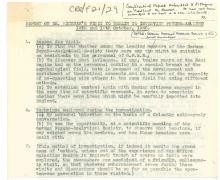
John Rickman and Roger Money-Kyrle go to Berlin with the German Personnel Research Branch. Their mission is 'to find out whether among the leading members of the German Psycho-Analytic Society there were any who might be suitable as assistants to the personnel of G.P.R.B. (German Personnel Research Branch of the Control Committee).'
Image: Beginning of Rickman's report
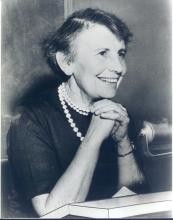
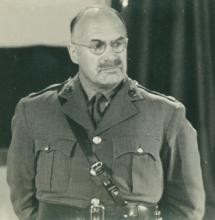
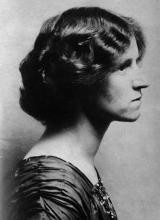
Susan Isaacs dies, aged 63. Her ideas continue to have a great impact on child development and educational theory after her death.